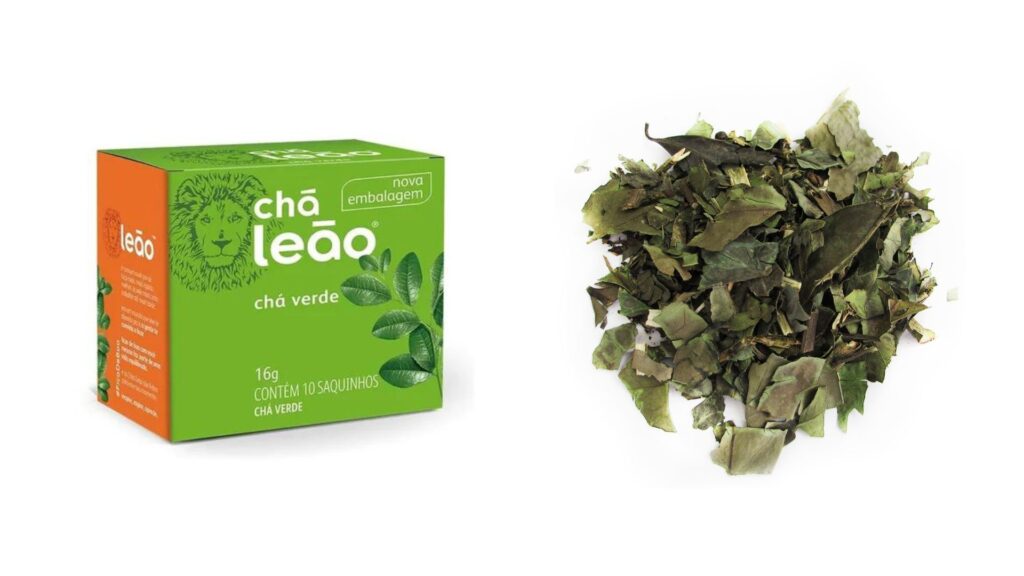Regularly drinking green tea can help prevent and control a variety of health problems. Research has found several benefits of this tea.
Improved mental health:

Drinking a cup of green tea can be very relaxing and there is a chemical explanation for this, as it contains a amino acid called L-theanine, which according to studies¹ can:
- Relieve stress;
- Cause relaxation;
- Promotes the fight against caffeine anxiety;
- Improvements in depression;
- Promote better quality sleep.
A study was carried out4 In a study of people with psychiatric problems, it was found that those who took 200 milligrams of theanine daily for a period of 4 weeks had significant improvements in sleep, depression and anxiety compared to the group that consumed a placebo.
Science has discovered² that consuming 200 to 400 milligrams of theanine daily provides these benefits. Studies³ reveal that green tea has the highest concentration of theanine (about 8 milligrams per cup) compared to other teas, such as black and white tea.
Increased memory:

Green tea can enhance memory by improving reasoning, comprehension, task performance and other factors.
A study5 The study involved healthy people who consumed a beverage containing 27.5 milligrams of green tea extract. They had them perform certain tasks while their brain activity was tracked. The people who consumed the green tea extract had a higher level of brain connectivity compared to the placebo group.
Protection against Alzheimer's, Parkinson's and neurodegenerative diseases:
Researchers have found that drinking green tea can protect against certain neurodegenerative diseases, such as Alzheimer's and Parkinson's. This is due to its high concentration of antioxidant nutrients.

A published research6 states that green tea was the one that most promoted the elimination of free radicals compared to others.
Antioxidants are responsible for protecting cells against damage that can be caused by free radicals, which over the years can lead to the emergence of neurodegenerative diseases.
A study7 A recent study of 1,545 similar elderly people with healthy brain function found that those who consumed tea frequently had lower rates of cognitive decline compared to the group who did not consume tea.
Cognitive decline refers to worsening confusion/memory loss and is one of the first symptoms presented in Alzheimer's and dementia, reported in studies8.
You can prevent stroke by:
According to the Brazilian Ministry of Health, on average, every five minutes, a person dies from a stroke (cerebrovascular accident), also known as a stroke.
Regular consumption of green tea may be a natural way to prevent the risk of stroke, a study9 analyzed the tea consumption habits of almost 500 million adults. It was concluded that consuming green tea in particular led to a lower risk of suffering a stroke.
Increased longevity:
Drinking tea, including green tea, is synonymous with a healthier and longer life.

Analyzing the research10 published in the European Journal of Preventive Cardiology, a group of 100,902 people without frequent illnesses was gathered. Those who consumed teas three or more times a week had a reduced risk of death from all diseases, such as cardiovascular, cerebral, cancer and others, except for coronary disease.
Researchers believe this is due to the antioxidants found in green tea, which are responsible for protecting cells, preventing cellular damage that is primarily responsible for the emergence of diseases.
Recommended consumption:

It is safe to drink up to 8 cups of green tea daily, according to11 the “National Center for Complementary and Integrative Health”.
Risks and precautions:
Green tea is a great ally for your health. However, it can pose risks for some people:
Drug interactions: Excessive consumption of green tea can interact with some medications, such as those for high blood pressure or those related to heart and liver problems, so consult your doctor.
Caffeine sensitivity: A cup of green tea contains between 20 and 50 milligrams of caffeine. Excessive caffeine consumption by people who are sensitive to this substance can cause12 agitation and nervousness. It can irritate the gastric mucosa causing stomach irritability and gastritis.
You can find naturally decaffeinated green tea options.
Insomnia: It is not recommended to drink green tea at night before going to bed. The caffeine in it keeps us awake, reducing drowsiness and can affect sleep cycles.
Sweeten: Avoid adding large amounts of sugar, honey, and sweeteners to your green tea. Excessive consumption can contribute to blocking the benefits, weight gain, diabetes, and other problems. To get the most out of your green tea, we recommend drinking it without any type of sweetener.
Other benefits:
In this content we only show the cognitive and cerebral benefits of consuming green tea, but this powerful tea has many other benefits such as:
- Cholesterol reduction;
- Thermogenic promoting weight loss and fat burning;
- May reduce blood pressure;
- Protects bone health;
- Prevents and treats type 2 diabetes.
See how to prepare your green tea to extract the maximum benefits during preparation:
- 1 — “Green Tea Suppresses Brain Aging: https://www.ncbi.nlm.nih.gov/pmc/articles/PMC8401650/”.
- 2 — “The effects of consumption of the amino acid L-theanine from green tea on the ability to control stress and anxiety levels: a systematic review: https://pubmed.ncbi.nlm.nih.gov/31758301/”.
- 3 — “Theanine and caffeine content of infusions prepared from commercial tea samples: https://www.ncbi.nlm.nih.gov/pmc/articles/PMC4787341/”.
- 4 — “Effects of L-theanine administration on stress-related symptoms and cognitive functions in healthy adults: a randomized controlled trial: https://www.ncbi.nlm.nih.gov/pmc/articles/PMC6836118/”.
- 5 — “Green tea extract improves frontal connectivity during working memory processing: https://www.ncbi.nlm.nih.gov/pmc/articles/PMC4159594/”.
- 6 — “Comparison of the antioxidant capacities of different types of tea using spectroscopy methods and semi-empirical mathematical model: https://doi.org/10.1007/s00217-017-2986-z”.
- 7 — “Prospective associations of tea consumption with risk of cognitive decline in older adults: a 1-year follow-up study in China: https://www.ncbi.nlm.nih.gov/pmc/articles/PMC8899511/”.
- 8 — “Subjective Cognitive Decline — A Public Health Problem: https://www.cdc.gov/aging/data/subjective-cognitive-decline-brief.html#:~:text=Subjective%20Cognitive%20Decline%20%28SCD%29%20is,Alzheimer’s%20disease%20and%20related%20dementias”.
- 9 — “Tea consumption and stroke risk in Chinese adults: a prospective cohort study of 0.5 million men and women: https://www.ncbi.nlm.nih.gov/pmc/articles/PMC7223259/”.
- 10 — “Tea consumption and risk of atherosclerotic cardiovascular disease and all-cause mortality: the China-PAR project: https://academic.oup.com/eurjpc/article/27/18/1956/6125502”.
- 11 — “Green tea: https://www.nccih.nih.gov/health/green-tea”.
- 12 — “How much caffeine is too much?”: https://www.fda.gov/consumers/consumer-updates/spilling-beans-how-much-caffeine-too-much”.







Excellent article! Great information.
Thanks